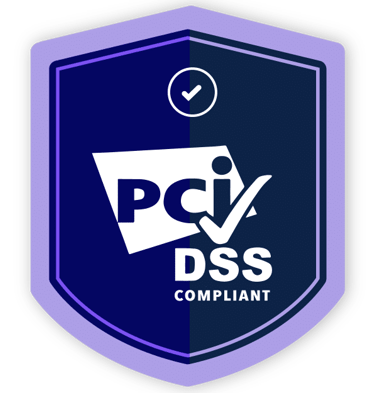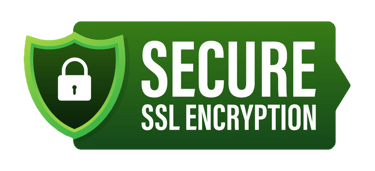How Home Health Agencies Can Stay Compliant During a Federal Government Shutdown
Stay compliant during a federal government shutdown with the latest CMS guidance.
When the federal government shuts down, healthcare providers across the country face uncertainty — especially Medicare-certified home health and hospice agencies that depend on federal oversight, reimbursement, and certification activities.
The Centers for Medicare & Medicaid Services (CMS) recently issued QSO-26-01-ALL (Revised October 21, 2025) to clarify how Survey and Certification (S&C) activities are handled during such lapses in federal appropriations. The memo outlines which activities are not affected, which are considered “excepted” or essential, and which are prohibited until funding.
For home health and hospice administrators, this updated guidance is critical. Understanding which operations continue and which pause can prevent compliance errors, billing delays, and survey deficiencies once normal CMS activities resume.
1. Overview of CMS Guidance During a Shutdown
CMS divides agency activities into three main categories during a government shutdown:
Activities Not Affected: Those funded through user fees or mandatory appropriations that continue as normal (e.g., CLIA, Medicaid-only, and CAA-funded hospice surveys).
Excepted Functions: Activities necessary to protect life and safety, including complaint investigations involving immediate jeopardy or harm.
Prohibited Activities: Routine federal operations like standard surveys, CHOW processing, and new provider certifications that are paused until funding is restored.
This framework ensures that patient safety remains protected while maintaining the legal boundaries of what can and cannot be performed under federal law.
2. Survey and Certification Activities That Continue
Even amid a shutdown, CMS ensures continuity for certain essential oversight functions. These are the activities that home health and hospice agencies should expect to proceed without interruption.
Complaint Investigations Involving Immediate Jeopardy or Harm
State Survey Agencies (SAs) are still required to investigate credible allegations of immediate jeopardy or actual harm to patients or residents. These investigations follow standard CMS protocols and can lead to enforcement actions if deficiencies are found. Providers may receive a Form CMS-2567 and must submit acceptable plans of correction.
Hospice Surveys Funded Under the Consolidated Appropriations Act (CAA)
CMS clarified that CAA-funded hospice surveys remain operational during shutdowns because this funding is mandatory and not subject to annual appropriations. Hospices should maintain readiness for both complaint and standard surveys to ensure uninterrupted compliance.
Medicaid-Only Facility Surveys
States may continue surveys for Medicaid-only providers, as Medicaid funding for the first quarter typically remains available. Coordination between state survey agencies and state Medicaid offices is encouraged to avoid oversight gaps.
Immediate Threats to Life or Safety
Survey agencies must continue responding to natural disasters, public health emergencies, or critical incidents that threaten patient safety. These interventions can include emergency waivers, immediate investigations, or disaster relief coordination.
Revisit Surveys to Prevent Termination
CMS allows revisit surveys when a provider has alleged compliance following noncompliance, and the revisit is necessary to prevent termination of Medicare participation or mandatory payment denials. This ensures providers can restore compliance and maintain operations.
3. Activities That Pause During a Government Shutdown
While essential oversight continues, many administrative and operational processes are prohibited under CMS’s 2025 guidance. Agencies should anticipate delays in the following areas:
Initial Medicare certification and deemed-status surveys
Standard recertification or routine surveys
Change of ownership (CHOW), change of location, and initial certification processing
Complaint investigations not involving immediate harm
Informal Dispute Resolutions (IDRs) unrelated to immediate terminations
Training and testing on the Surveyor Minimum Qualifications Test (SMQT)
This means that newly formed home health or hospice agencies awaiting initial surveys will experience a pause in certification timelines. Similarly, existing agencies with pending CHOWs or location changes will need to wait until CMS resumes normal operations.
4. Maintaining Compliance with Medicare Conditions of Participation (CoPs)
Even though certain surveys are paused, the Medicare Conditions of Participation (42 CFR §484) remain fully enforceable. Agencies should view this time as an opportunity to strengthen compliance systems and ensure full readiness for future surveys.
Patient Rights and Responsibilities (§484.50)
Confirm all patients receive updated consent forms and privacy notices.
Ensure documentation shows that patient education was provided and understood.
Verify that staff are trained to address patient grievances in accordance with CoPs.
Comprehensive Assessment of the Patient (§484.55)
Continue performing timely Start-of-Care (SOC) and Recertification assessments.
Validate OASIS submissions to ensure accuracy and avoid billing discrepancies.
Review clinical documentation to confirm all relevant health conditions are addressed.
Care Planning, Coordination, and Quality of Care (§484.60)
Review individualized care plans for completeness and measurable outcomes.
Ensure interdisciplinary coordination between nursing, therapy, and social work staff.
Reinforce timely physician orders and electronic signature processes.
Quality Assessment and Performance Improvement (QAPI) (§484.65)
Continue internal audits and QAPI tracking even if surveys are delayed.
Focus on measurable indicators like infection rates, medication reconciliation, and patient satisfaction.
Maintain meeting minutes and data analysis to demonstrate continuous improvement.
Infection Prevention and Control (§484.70)
Reassess PPE policies and hygiene protocols.
Conduct infection control refresher education for all field staff.
Document adherence to CDC and CMS infection prevention standards.
Emergency Preparedness (§484.102)
Review and update your Emergency Preparedness Plan to include federal shutdown contingencies.
Keep open communication with patients and families regarding operational changes.
Maintain contact with State Survey Offices and CMS regional points.
5. Operational Risk Management During a Shutdown
While regulatory oversight may slow, agencies must continue functioning efficiently. The following steps help ensure business continuity and financial stability:
Protect Billing and Revenue Streams
Continue submitting claims promptly to avoid reimbursement delays.
Monitor payer responses through Medicare Administrative Contractors (MACs).
Document all care services accurately to prevent ADR or TPE risks once audits resume.
Maintain Staffing Stability
Communicate clearly with clinicians and office staff about operational expectations.
Reinforce that all compliance, documentation, and patient care duties continue as usual.
Use this time for internal education, policy review, and performance training.
Document Every Operational Change
Maintain written documentation for all administrative decisions made during the shutdown. This provides an auditable trail demonstrating transparency and compliance should CMS review agency operations later.
6. How to Prevent Deficiencies and Survey Citations
Even without active surveys, home health and hospice agencies must sustain compliance with all CoPs. Here’s how to stay proactive:
Conduct Internal Mock Surveys: Use standard CMS survey tools to identify documentation gaps.
Audit Clinical Notes: Review for timeliness, missing signatures, and incomplete interventions.
Reinforce OASIS and Plan of Care Accuracy: Errors in these areas are leading causes of deficiencies.
Update Policy Manuals: Ensure policies reflect the latest CMS guidance, especially related to emergencies and staff responsibilities.
Educate Staff Continuously: Host in-service sessions to review top survey citation areas and reinforce clinical best practices.
Pro tip: Many agencies use this downtime to complete annual QAPI evaluations, review infection control logs, and update emergency preparedness drills — all of which strengthen compliance and readiness once survey operations restart.
7. Common Questions Agencies Ask During a Shutdown
Q: Can CMS perform initial surveys for new home health agencies during a shutdown?
A: No. CMS suspends all initial surveys until funding resumes. Agencies should remain ready so the survey can proceed immediately when operations restart.
Q: Are hospice agencies still subject to federal survey oversight?
A: Yes, if their surveys are funded through the Consolidated Appropriations Act (CAA). Those are considered mandatory and not affected by the lapse.
Q: What happens to CHOW or location change applications?
A: These are paused until CMS resumes normal certification processing. Agencies should prepare updated documentation in advance to avoid further delay.
Q: Will complaint investigations continue?
A: Only those involving immediate jeopardy or actual harm will proceed. Other complaints will be held until after the shutdown.
8. Staying Proactive with HealthBridge Consulting
Navigating a government shutdown requires preparation, organization, and regulatory expertise. That’s where HealthBridge Consulting provides invaluable support.
HealthBridge specializes in helping home health and hospice agencies remain compliant with Medicare’s Conditions of Participation, even during periods of disruption or uncertainty.
Our consulting team offers:
Mock Surveys & Compliance Audits: Identify and correct deficiencies before survey resumption.
QAPI Program Development: Align your data tracking and performance improvement with CMS expectations.
Policy & Procedure Updates: Ensure your documentation meets both state and federal standards.
Survey Readiness Coaching: Equip administrators and clinicians with tools to pass surveys confidently.
Regulatory Management: Guidance on CHOWs, license renewals, and post-shutdown compliance planning.
At HealthBridge, we help transform uncertainty into readiness — ensuring your agency maintains operational stability, clinical quality, and survey success regardless of federal circumstances.
Conclusion
A federal government shutdown may pause some CMS activities, but it does not pause your agency’s responsibility to meet Medicare’s Conditions of Participation. Home health and hospice providers must stay proactive—protecting patients, maintaining documentation, and preparing for surveys once operations resume.
By staying compliant, continuing education, and strengthening internal systems, agencies not only safeguard their certification but also demonstrate their ongoing commitment to quality patient care.
For agencies seeking expert assistance with compliance, policy development, or survey preparation, HealthBridge Consulting offers tailored solutions to help your organization remain confident, compliant, and ready for any CMS environment.





